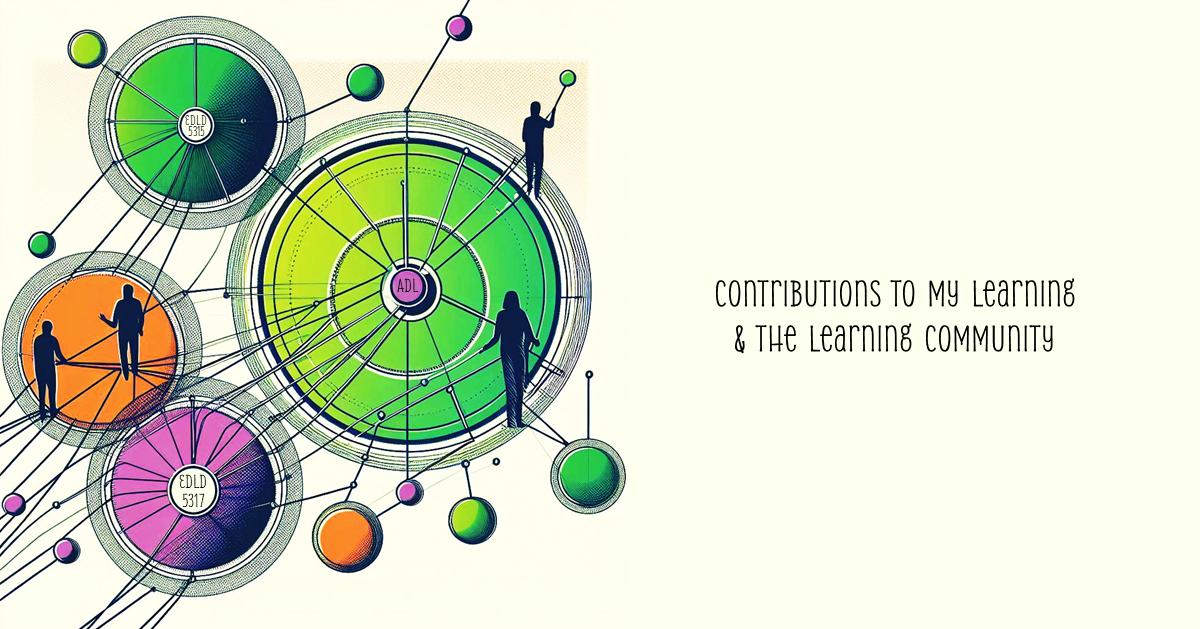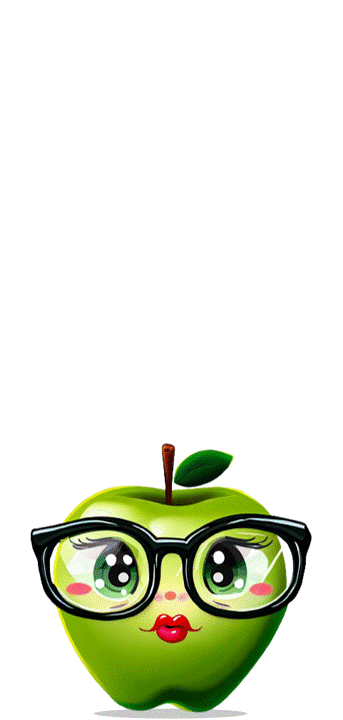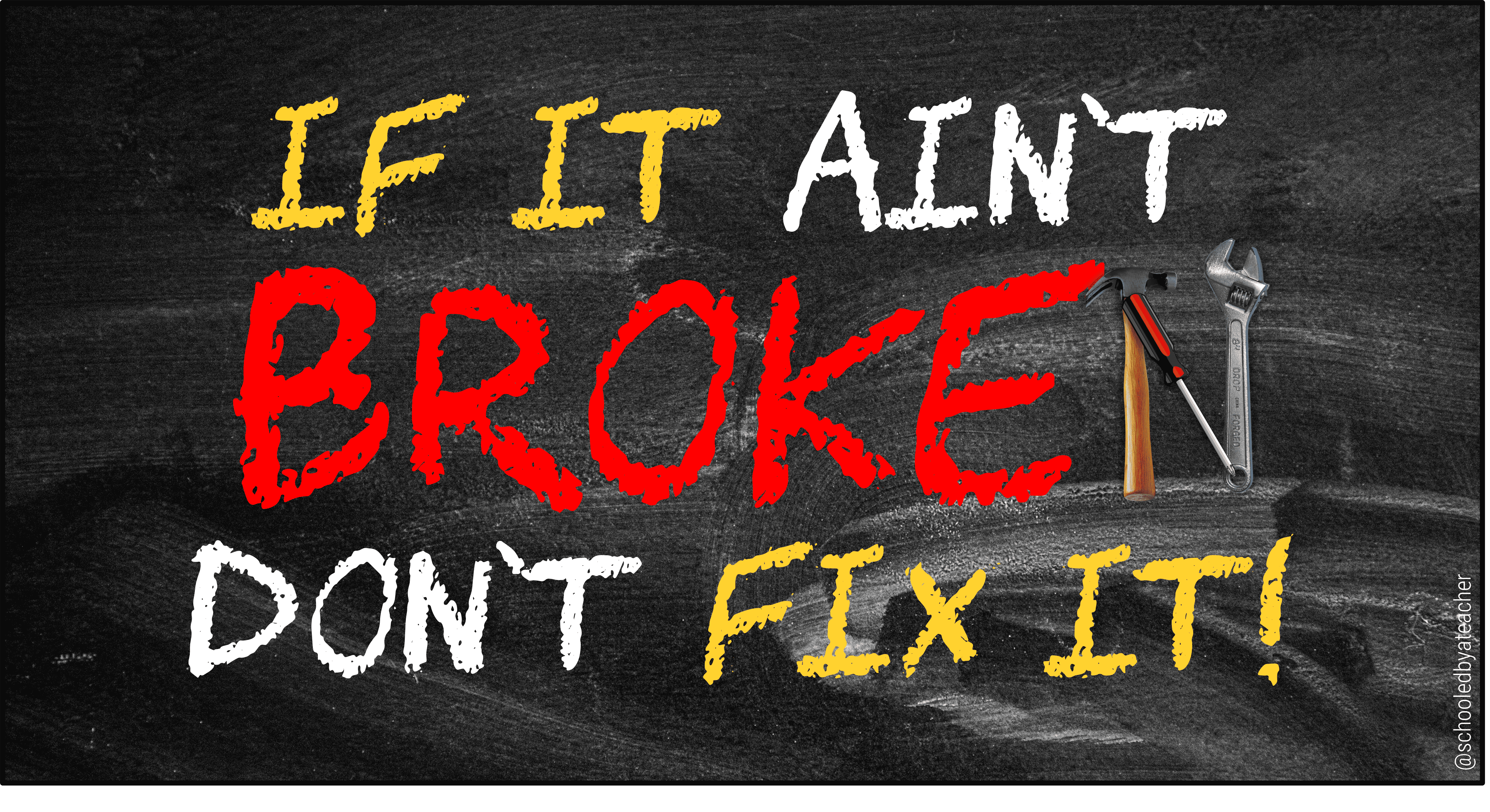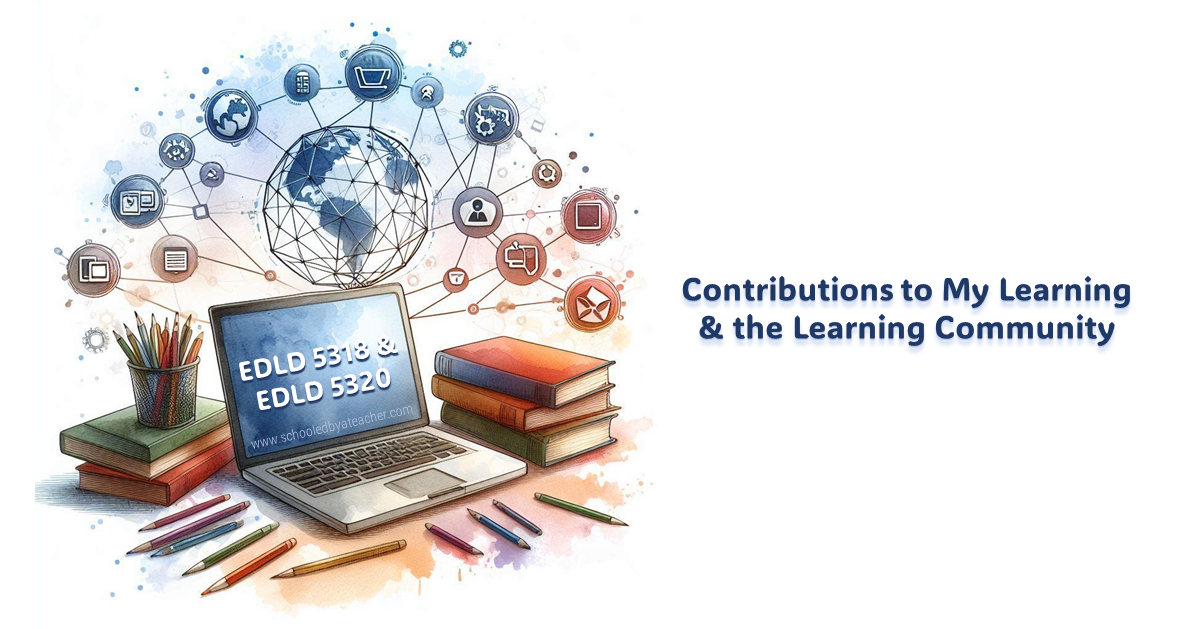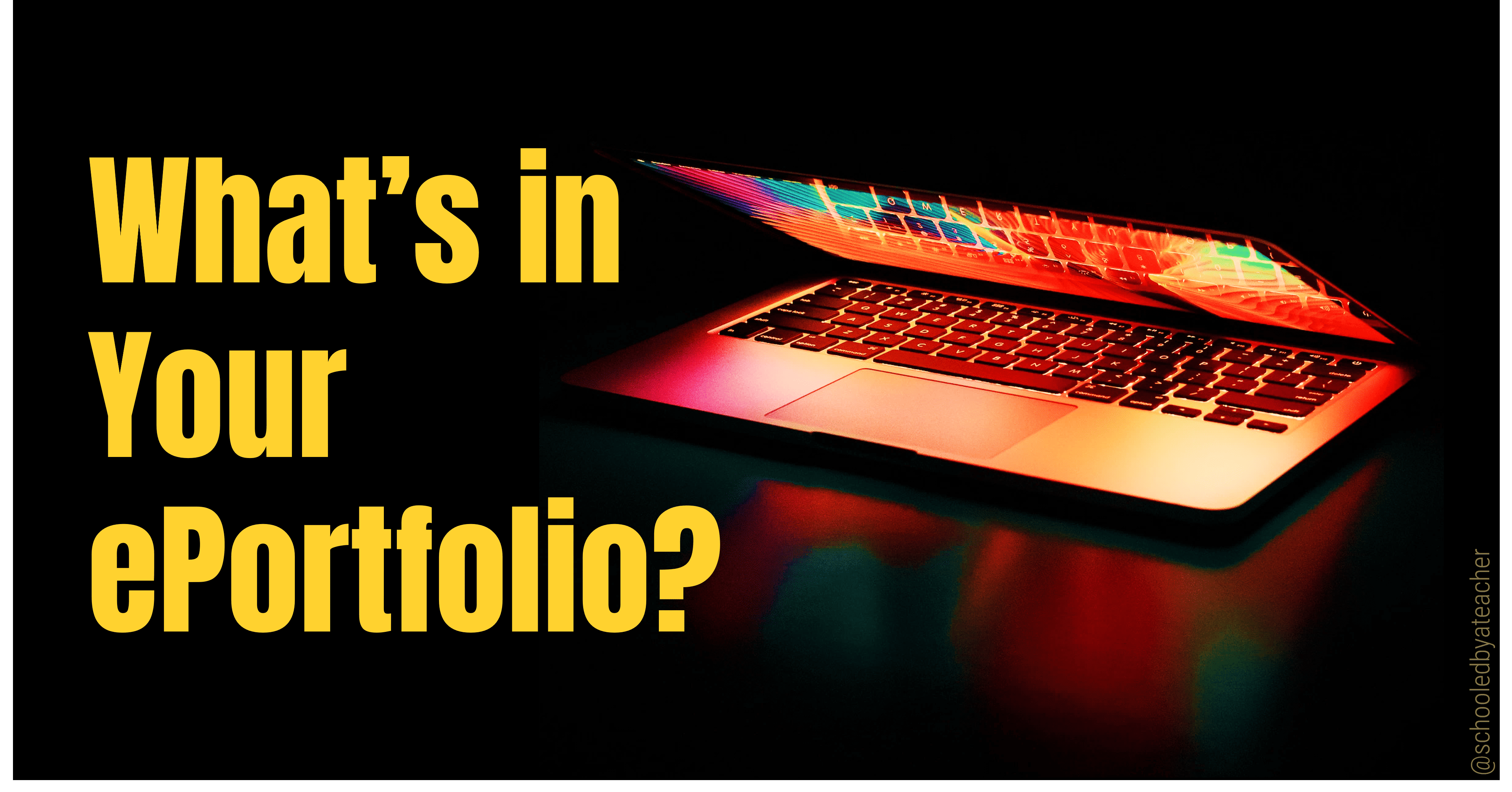Nearing the halfway point of my final semester in the Applied Digital Learning master’s program, I have completed two enriching courses: EDLD 5315 – Assessing Digital Learning and EDLD 5317 – Resources for Digital Environments. In EDLD 5315, I honed my skills in conducting action research. This included outlining my research, reviewing relevant literature, and developing a plan to evaluate the effectiveness of my innovation plan. EDLD 5317, on the other hand, focused on crafting compelling communication strategies. I outlined, drafted, reviewed, and published written and digital media pieces, allowing me to effectively communicate my innovation plan to a wider audience.
A Focus on the Learning
Through EDLD 5315 – Assessing Digital Learning, I began the process of action research to investigate the effectiveness of technology-enhanced project-based learning (TEPBL) in supporting the academic and linguistic development of newcomer emergent bilingual students (NEBS), which is my innovation plan. The course equipped me with the skills to design and implement an action research plan, starting with an outline that defined my research question and methodology. A comprehensive literature review provided valuable insights into the potential benefits and challenges of TEPBL for NEBS, highlighting its potential to foster essential skills while acknowledging the need for tailored implementation strategies. Building upon this foundation, I developed a detailed action research plan that detailed the research design, data collection methods (including pre-tests, surveys, interviews, and student work), and analysis procedures. The plan emphasized sharing the findings with educators, administrators, and researchers to maximize the impact and inform educational practices. This experience in EDLD 5315 has been helpful in providing me with the knowledge and skills to conduct meaningful research and explore innovative approaches like TEPBL to support the success of all students, especially those facing unique learning challenges.
In EDLD 5317 – Resources for Digital Environments, I outlined, drafted, engaged in a peer assessment for, and revised for publishing a written article titled “PBL for Newcomer Emergent Bilingual Students in Language Arts Classes” targeting educators, aiming for publication by Edutopia. The article showcased my year-long implementation and student success stories, building a case for technology-enhanced PBL’s impact on NEBS. Additionally, I published a podcast episode titled “Project-Based Learning for Newcomer Emergent English Learners” on YouTube, outlining the challenges faced by newcomer students and highlighting the benefits of PBL in fostering engagement, communication, and real-world learning. My experience in EDLD 5317 has really helped me develop the means to spread the word about my innovation plan and its potential benefits.
What’s Been Working and Areas of Growth
One of the factors that contributed to my success in both courses was the collaboration with my peers Yagaira Alaniz and Hilda Rodriguez. We communicated frequently through email and Blackboard messages and kept track of meeting notes, upcoming items, and ideas for how to complete assignments. Lastly, we also worked together to review assignments and provided constructive feedback and feedforward throughout the semester.
Additionally, participating in the peer created Facebook group – EDLD 5315/5317 was invaluable for expanding my network and refining my work for the publication rough draft assignment. The group members fostered a collaborative environment where I exchanged feedback and “feedforward” with peers. So, while collaborating with Yagaira and Hilda on my publication rough draft, I also gained valuable insights from Shanael Williams and Kimberley Bridgewater ‘s feedback on my work. Additionally, I provided feedback on the publication drafts of Hershelle Elumelu, Denin Williams, and Trisha Quintanilla Saleh. This exchange not only helped me identify areas to improve my own writing but also broadened my perspective on the diverse innovations my peers were pursuing.
In relation to contributions to the EDLD 5315 and EDLD 5317 learning communities, I made timely posts in all Blackboard discussions and commented on other posts from my peers as well. As with the previous courses from the Summer and the Fall semesters, I enjoyed reading the posts of my peers which contained varying perspectives and unique ways of interpreting the prompts, readings, videos, and resources.
Regarding areas I can grow in, I would have liked to explore more tools and platforms for creating and sharing educational content as I continue to develop my innovation plan. I would have also liked to grow my base collaboration community which I attempted to do by making a BlackBoard post in the EDLD 5315 Student/Faculty Lounge. However, I later deleted the post after joining the EDLD 5315/5317 Facebook group.
Given all of this, I would score myself a 96/100 for EDLD 5315 and a 96/100 for EDLD 5317.
Final Thoughts
In conclusion, I am grateful for the opportunity to take these courses and to learn from my instructors and peers. In these past eight weeks, I have acquired new knowledge and skills that will help me evaluate the effectiveness of my innovation plan and expand my audience by sharing my findings to promote broader understanding of innovative practices for newcomer emergent bilingual students. I am eager to continue applying what I learned in these courses to my future practice and research. I am also looking forward to exploring new topics and challenges in the final two courses of the Applied Digital Learning master’s degree program.
